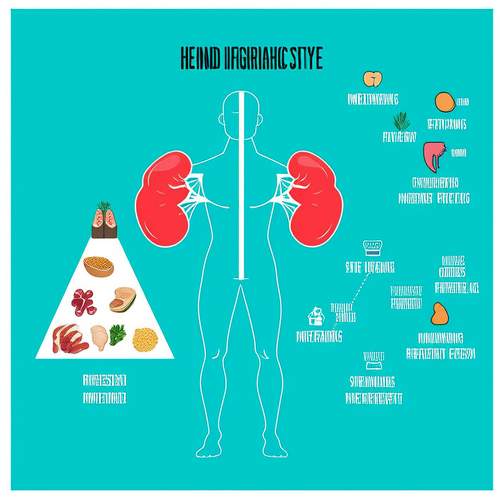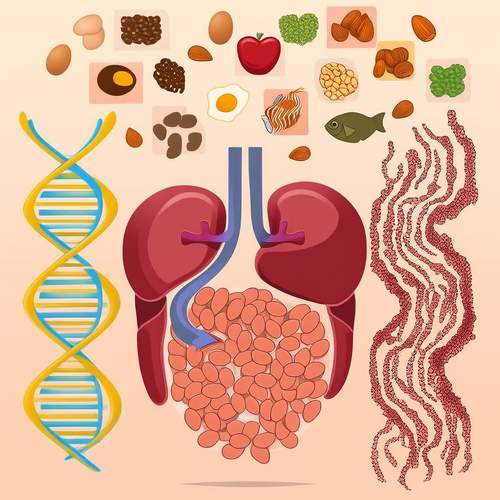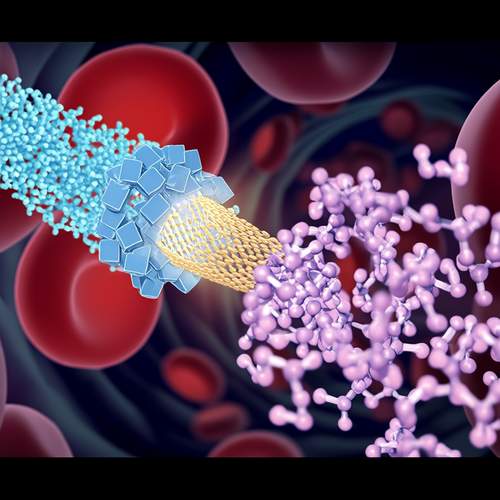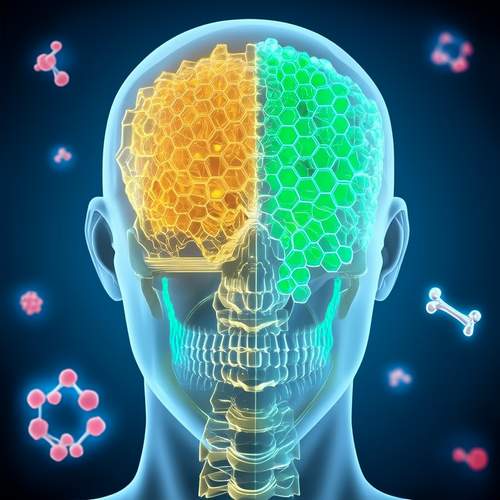In recent years, the concept of adrenal fatigue has gained traction among holistic health practitioners, despite remaining a controversial topic in conventional medicine. The theory suggests that chronic stress overwhelms the adrenal glands, leading to a cascade of symptoms such as fatigue, brain fog, and cravings for salty or sugary foods. While the medical community debates its validity, many individuals report feeling better after adopting dietary strategies aimed at supporting adrenal health. This article explores the principles of an adrenal fatigue diet, offering practical insights for those seeking natural ways to combat stress-related exhaustion.
The adrenal glands, small but mighty organs perched atop the kidneys, play a crucial role in managing stress through hormone production. When functioning optimally, they release cortisol in a rhythmic pattern—higher in the morning to help us wake up, gradually tapering off by evening. Proponents of adrenal fatigue theory argue that prolonged stress flattens this curve, resulting in erratic cortisol levels that disrupt sleep, energy, and metabolism. While blood tests may not show clinical adrenal insufficiency (Addison's disease), subtle dysfunction might still impact quality of life, creating a gray area where dietary intervention becomes appealing.
Central to the adrenal fatigue diet is the concept of eating for hormonal balance rather than just calorie counting. Breakfast takes center stage as a non-negotiable meal, ideally consumed within an hour of waking to stabilize blood sugar after the overnight fast. A combination of high-quality protein (like pastured eggs or organic Greek yogurt), healthy fats (avocado or coconut oil), and complex carbohydrates (sweet potatoes or quinoa) provides sustained energy without spiking glucose levels. This macronutrient triad appears frequently throughout the day in smaller, balanced meals to prevent the energy crashes that exacerbate stress responses.
Certain nutrients emerge as superstars in adrenal support literature. Vitamin C, abundantly found in camu camu berries and bell peppers, is crucial because adrenals use it disproportionately during stress responses. Magnesium—present in pumpkin seeds, spinach, and dark chocolate—helps relax the nervous system, while B vitamins from nutritional yeast and liver support energy production at the cellular level. Sea salt often gets recommended over refined varieties due to its trace minerals that may help regulate fluid balance and blood pressure, addressing the salt cravings some experience with adrenal dysfunction.
The adrenal fatigue diet strongly discourages the rollercoaster of stimulants and depressants that many rely on to power through stressful days. Coffee, especially consumed on an empty stomach or after noon, can mimic stress hormones and disrupt cortisol rhythms. Alcohol, while initially relaxing, interferes with sleep quality and liver detoxification pathways already burdened by stress. Refined sugars and processed foods create inflammation and blood sugar swings that further tax the adrenals. Instead, adaptogenic herbs like ashwagandha and rhodiola often get incorporated as gentle supporters of stress resilience.
Hydration takes on special significance in adrenal recovery protocols. Unlike the standard eight-glasses-a-day advice, the adrenal fatigue approach emphasizes electrolyte balance. Coconut water, herbal teas, and mineral-rich broths help maintain hydration without flushing out essential sodium and potassium. Many practitioners suggest adding a pinch of high-quality salt to water, especially upon waking or before exercise, to support the fluid regulation that stress hormones influence. This nuanced approach to hydration reflects the diet's overarching philosophy of working with, rather than against, the body's stress adaptation systems.
Food timing and preparation methods also factor into adrenal dietary strategies. Overly restrictive diets or long fasting periods may backfire by creating additional metabolic stress. Gentle cooking methods like steaming and stewing are favored over high-heat techniques that can damage nutrients. Soaking grains and nuts reduces anti-nutrients that might hinder mineral absorption—a key consideration when the body needs every possible nutritional advantage. Evening meals lean toward easily digestible proteins and magnesium-rich foods to promote restorative sleep, which forms the foundation of adrenal recovery.
While the adrenal fatigue diet shares similarities with other whole-foods approaches, its distinct emphasis on stress physiology sets it apart. Where paleo or ketogenic diets might aggressively restrict carbohydrates, the adrenal version often includes strategic carb sources to prevent cortisol spikes from low blood sugar. Unlike vegan diets that eliminate animal products, adrenal protocols frequently incorporate high-quality animal proteins for their complete amino acid profiles and vitamin B12 content. This tailored macronutrient balancing act aims to provide steady energy while minimizing additional stressors on an already overtaxed system.
Critics argue that the adrenal fatigue diet lacks robust scientific validation, with many recommendations based on anecdotal evidence or extrapolated from studies on chronic stress rather than specific adrenal dysfunction. However, the diet's focus on nutrient density, blood sugar regulation, and reduction of inflammatory foods aligns with generally accepted principles of healthy eating. The psychological benefit of having a structured approach to combat fatigue shouldn't be underestimated either, as the sense of control itself may help mitigate stress responses. For those experiencing unexplained exhaustion that conventional medicine hasn't resolved, this dietary framework offers a tangible path to explore.
Implementing an adrenal fatigue diet requires more than just changing what's on the plate—it invites a reconsideration of one's relationship with food as medicine. The practice of mindful eating, chewing thoroughly, and creating calm mealtime environments all support the parasympathetic "rest and digest" mode that counterbalances stress. Keeping a food-energy journal helps identify personal triggers and beneficial foods, since individual responses can vary significantly. Over time, adherents often report not just improved energy, but better mood stability, clearer thinking, and enhanced resilience to daily stressors.
As with any dietary approach, the adrenal fatigue protocol works best when personalized. Some may thrive on more animal proteins while others do better with plant-based versions. The common thread involves choosing nutrient-dense, minimally processed foods that support rather than strain the body's stress response systems. While not a magic bullet, this way of eating provides a nutritional foundation that, combined with proper sleep, movement, and stress management techniques, can help restore balance in our overstimulated modern lives. Whether or not adrenal fatigue gains full medical recognition, the symptoms it describes are very real for many—and thoughtful dietary adjustments offer a practical place to start feeling better.

By /May 21, 2025

By /May 21, 2025

By /May 21, 2025

By /May 21, 2025

By /May 21, 2025

By /May 21, 2025

By /May 21, 2025

By /May 21, 2025

By /May 21, 2025

By /May 21, 2025

By /May 21, 2025

By /May 21, 2025

By /May 21, 2025

By /May 21, 2025

By /May 21, 2025

By /May 21, 2025

By /May 21, 2025

By /May 21, 2025

By /May 21, 2025

By /May 21, 2025